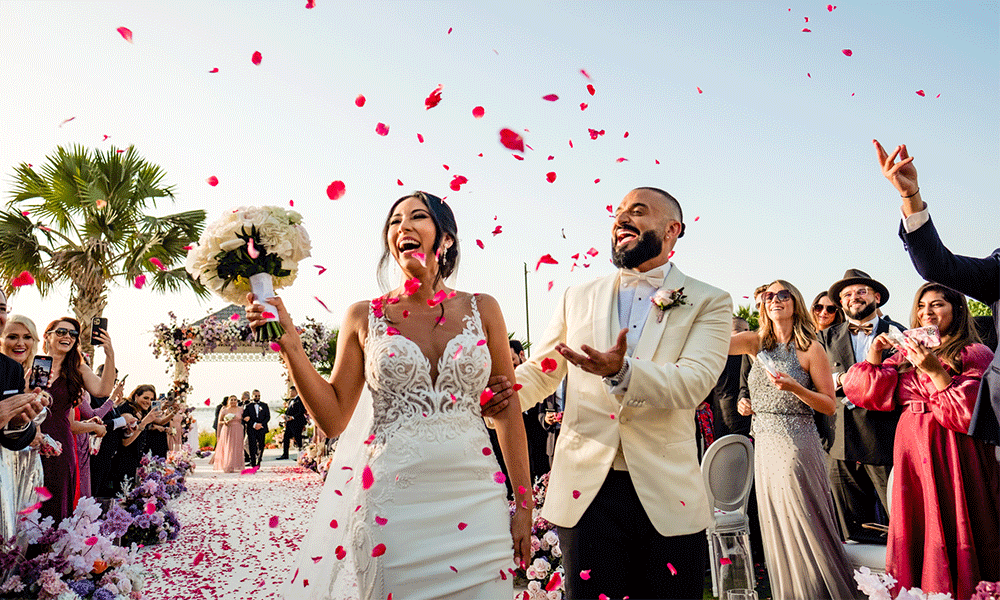The modern ways are different! In a world where marriage is about quality and 50/50, the cost of the wedding is also split that way! The lines of who pays for what when it comes to weddings these days are definitely blurred. And even though traditionally, the load is upon the bride’s family, there’s nothing written on the stones! Couples are increasingly choosing to handle at least half of the wedding expenses on their own.
Wedding traditions dictate their own set of rules, but modern-day couples are also evolving how they’d like to handle wedding finances. So to make it easier, and give you a flavor of both old and new approaches, here’s a guide to wedding budgets.
Who Pays What?

Picture Courtesy: @vinuthnagaridipuri
Let’s talk about the traditional way first! Long, long time before technology and women empowerment took over the world, the system to cover the cost of weddings was entirely different.
Traditionally, The bride’s family was supposed to pay for almost 80% of the wedding cost! This includes: Engagement party, Wedding dress, Wedding planner, Stationery, Photography & videography, Venue & Transportation, Ceremony/reception, Decor, Wedding Cake
The Groom’s family is responsible for: Marriage license feeEngagement & Wedding Rings / Jewelry, Honeymoon, Marriage license/officiant fee, Rehearsal dinner, Bride’s bouquet & jewelry, DJ/band and liquor/alcohol for wedding reception
How Much Are The Parents Involved?

Picture Courtesy: @mhartphoto
Again, on the sprint of breaking traditions, modern couples are taking up the responsibility of paying up for their own wedding. This gives them control over navigating the overall budget. They have the final word on the size of the event, the guest list, the event’s overall aesthetic, the fashion, and more. They’re also able—but not required—to ask friends and family for their input on an as-needed or wanted basis. However, parents also contribute to their children’s big day by contributing a part- especially the guest cost. It can be either their accommodation or food or transport, the extended family of the bride & groom are covered by respective parents.
How To Ask Parents For Their Contribution

Picture Courtesy: @fazackarley
Keep in mind that contributions from family members are a gift, and should be greatly appreciated but not expected. Be humble. When talking about the budget with both sets of parents and receiving their contributions to the wedding finances, do not share what each is willing or able to spend with the other set of parents. It simply breeds resentment and competition. If it’s getting too hard to speak to your family or your fiance’s family, you can let your wedding planner do so.
Divide & Conquer

Picture Courtesy: @savanna_richardson_photography
This is the most common method adopted by couples where the whole cost is divided into an equal split between the bride & groom (or their families). You can also opt for a three-way split among – the couple, the bride’s family & the groom’s family.
The Bottom Line

Picture Courtesy: @sambajoy
Deciding who pays what for wedding expenses shouldn’t be a source of stress. Working together as a couple to set your budget and discuss wedding costs with your respective families can help you find an arrangement that works for everyone. And at the end of the day, what you decide should reflect your personal and financial values. It’s your wedding. Make it one you love—and can afford.
Feature Image Credit: @tkshotz












Leave a Reply